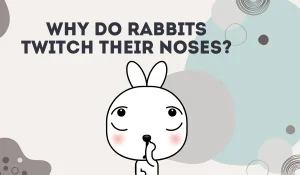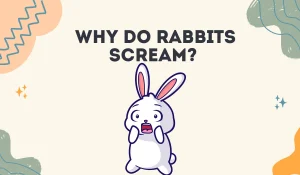Rabbits are adorable and popular pets that make great companions for many people. As with any pet, it’s important to ensure that they are receiving a balanced and healthy diet. Many rabbit owners may wonder if their furry friends can have strawberries as part of their diet.
The answer is yes, rabbits can eat strawberries, but there are some important things to keep in mind. Strawberries are a sweet fruit that rabbits find attractive, and they are not toxic to rabbits. However, strawberries should only be given to rabbits in moderation and as a treat rather than a regular part of their diet.
While strawberries are safe for rabbits to eat, too many can cause serious gastrointestinal problems or weight gain. It’s important to remember that rabbits are herbivores, and their diet should consist mainly of hay, fresh vegetables, and a small amount of fruit as a treat. In this article, we will explore the risks and benefits of feeding strawberries to rabbits and provide some tips for incorporating them into a balanced diet.
Can Rabbits Eat Strawberries?
Strawberries are a popular fruit among humans, but can rabbits eat strawberries too? The answer is yes, rabbits can eat strawberries, but it is important to feed them in moderation and with caution.
Nutritional Value of Strawberries for Rabbits
Strawberries are a good source of Vitamin C, fiber, and antioxidants. Vitamin C is essential for rabbits as they cannot produce it on their own. Fiber is important for their digestive health, and antioxidants help prevent cell damage. Strawberries also contain sugar, calcium, and phosphorus.
| Nutrient | Amount per 100g |
| Calories | 32 |
| Protein | 0.7g |
| Fat | 0.3g |
| Carbohydrates | 7.7g |
| Fiber | 2g |
| Sugar | 4.9g |
| Calcium | 16mg |
| Phosphorus | 24mg |
| Vitamin C | 58.8mg |
Benefits of Feeding Strawberries to Rabbits
Feeding strawberries to rabbits in moderation can provide them with essential nutrients and hydration. The high water content in strawberries can help keep rabbits hydrated, especially during hot weather. The fiber in strawberries can also aid in their digestion and prevent gastrointestinal problems.
Risks of Feeding Strawberries to Rabbits
While strawberries can provide benefits to rabbits, feeding them too much can cause health problems. The high sugar content in strawberries can lead to weight gain, diarrhea, and dental problems. The calcium and phosphorus in strawberries can also lead to bladder stones if fed in excess.
It is important to feed strawberries to rabbits in moderation and as an occasional treat. One medium-sized strawberry is enough for a rabbit to enjoy without causing any problems. It is also important to wash strawberries thoroughly and remove the stem and leaves before feeding them to rabbits.
How Many Strawberries Can Rabbits Eat?
Strawberries are a sweet treat that many rabbits enjoy, but it is important to feed them in moderation. Overfeeding strawberries can cause digestive upset and other health issues. This section will discuss the recommended portion sizes and frequency of feeding strawberries to rabbits.
Portion Sizes for Rabbits
According to Rabbitology, rabbits can eat strawberries, their plant, leaves, seeds, and stem. However, they should only be fed in small amounts. The amount of strawberries given to rabbits should be based on their body weight. As a general rule, rabbits should not eat more than two tablespoons of cut strawberries at a time, around the size of your thumb. One medium-sized strawberry is enough. Big bunnies (8 pounds or more) may have two small strawberries or one larger one. It is important to keep in mind that the portion sizes should be adjusted based on the rabbit’s overall diet and health condition.
Frequency of Feeding Strawberries to Rabbits
While strawberries are safe for rabbits to eat, they should not be given every day. According to Fuzzy Rabbit, rabbits should not eat strawberries on days that they are given other sweet treats, like apples or blueberries. This is to prevent overfeeding of sugary foods, which can lead to health issues. It is recommended to feed strawberries to rabbits only once or twice a week, in small amounts.
Preparing Strawberries for Rabbits
Washing and Cutting Strawberries
Before feeding strawberries to rabbits, it is important to wash them thoroughly to remove any pesticides or other harmful substances. Rinse the strawberries under running water and use a vegetable brush to remove any dirt or debris. It is also important to remove the green leaves and stem as they are not safe for rabbits to eat.
If the strawberries are too big for the rabbit to eat comfortably, they can be cut into smaller pieces. However, it is important not to cut them into very small pieces as this can be a choking hazard for rabbits.
Serving Strawberries to Rabbits
Strawberries are a great treat for rabbits, but they should be given in moderation. Too many strawberries can cause digestive problems and even lead to obesity. It is recommended to give rabbits no more than one or two small strawberries per week.
It is also important to remember that strawberries should be given as a supplement to a balanced diet of hay, fresh vegetables, and rabbit pellets. They should not be used as a substitute for any of these foods.
When serving strawberries to rabbits, it is best to give them fresh and at room temperature. Do not give them frozen strawberries or strawberries that have been stored in the refrigerator for too long as this can cause stomach upset.
Other Fruits for Rabbits
While strawberries can be a tasty treat for rabbits, it’s important to remember that they should only be given in moderation due to their high sugar content. Here are some other fruits that are safe for rabbits to eat:
Safe Fruits for Rabbits
Some safe fruits for rabbits include:
- Apples (without seeds)
- Bananas
- Blueberries
- Mango
- Papaya
- Peaches
- Pears
- Pineapple
- Raspberries
Just like with strawberries, it’s important to remember to give these fruits in moderation as treats, and not as a main part of their diet.
Fruits to Avoid
There are some fruits that should be avoided when it comes to feeding rabbits. These include:
- Grapes and raisins (can cause kidney damage)
- Cherries (can cause digestive upset)
- Citrus fruits (can cause mouth irritation)
- Rhubarb (toxic to rabbits)
It’s important to always research any new food before giving it to your rabbit, and to introduce new foods slowly to avoid digestive upset.
Conclusion
After conducting research and analyzing the information, it can be concluded that rabbits can eat strawberries in moderation. Strawberries are high in fiber and other nutrients that are beneficial to a rabbit’s health. However, they are also high in sugar, which could lead to weight and digestive issues if consumed excessively.
It is important to note that rabbits should only be given fresh, ripe strawberries. Dried strawberries contain extra sugars that can negatively impact a rabbit’s health. Cooked strawberries should also be avoided as they may contain added sugars or other ingredients that are harmful to rabbits.
When feeding strawberries to rabbits, it is recommended to give them one to two tablespoons per serving a few times a week. This will provide them with the necessary nutrients without overloading them with sugar. It is also important to introduce new foods slowly and monitor the rabbit’s reaction to them.
While strawberries can be a healthy addition to a rabbit’s diet, they should be given in moderation and as part of a balanced diet that includes hay, fresh vegetables, and a limited amount of pellets. By following these guidelines, rabbit owners can ensure that their pets stay healthy and happy.
FAQ
What is rabbits favorite food?
Rabbits have a sweet tooth and tend to enjoy fruits such as apples, bananas, and berries as well as leafy greens like kale and spinach. Timothy hay is also a crucial part of their diet and is important for their dental health.
Can I feed my rabbit 3 times a day?
While rabbits should have access to hay and water at all times, feeding them three small meals a day of fresh vegetables and a small amount of pellets is a good way to ensure that they’re getting the nutrition they need.



